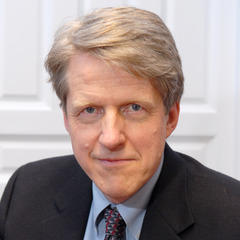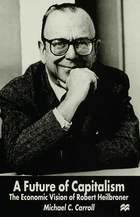Richard Whately Quotes - Page 3

Francis Bacon, Richard Whately (1858). “The Essays ... Revised ... by Thomas Markby ... Second edition”, p.299
He who is not aware of his ignorance will be only misled by his knowledge.
Richard Whately (1856). “Thoughts and Apophthegms: From the Writings of Archbishop Whateley”, p.164
Woman is like the reed which bends to every breeze, but breaks not in the tempest.
Richard Whately (1856). “Thoughts and Apophthegms: From the Writings of Archbishop Whateley”, p.309
Richard Whately (1856). “Thoughts and Apophthegms: From the Writings of Archbishop Whateley”, p.158
Francis Bacon, Richard Whately (1858). “Essays: With Annotations by Richard Whately”, p.99
Richard Whately (1861). “Logic”, p.65
Francis Bacon, Richard Whately (1858). “Essays: With Annotations by Richard Whately”, p.484
Richard Whately (1856). “Thoughts and Apophthegms: From the Writings of Archbishop Whateley”, p.22
Richard Whately (1858). “Elements of Rhetoric: Comprising an Analysis of the Laws of Moral Evidence and of Persuasion : with Rules for Argumentative Composition and Elocution”, p.247
Richard Whately (1856). “Thoughts and Apophthegms: From the Writings of Archbishop Whateley”, p.200
Party spirit enlists a man's virtues in the cause of his vices.
Richard Whately (1856). “Thoughts and Apophthegms: From the Writings of Archbishop Whateley”, p.95
Richard Whately (1856). “Thoughts and Apophthegms: From the Writings of Archbishop Whateley”, p.155
The tendency of party spirit has ever been to disguise and propagate and support error.
Richard Whately (1856). “Thoughts and Apophthegms: From the Writings of Archbishop Whateley”, p.95
Richard Whately (1846). “Elements of Rhetoric: Comprising an Analysis of the Laws of Moral Evidence and of Persuasion, with Rules for Argumentative Composition and Elocution”, p.394
Richard Whately (1872). “Elements of Rhetoric: Comprising an Analysis of the Laws of Moral Evidence and of Persuasion, with Rules for Argumentative Composition and Elocution”, p.29
Richard Whately (1867). “Rhetoric”, p.9
Francis Bacon, Richard Whately (1858). “Essays: With Annotations by Richard Whately”, p.535
Francis Bacon, Richard Whately (1858). “The Essays ... Revised ... by Thomas Markby ... Second edition”, p.500
Francis Bacon, Richard Whately (1858). “Essays: With Annotations by Richard Whately”, p.416






